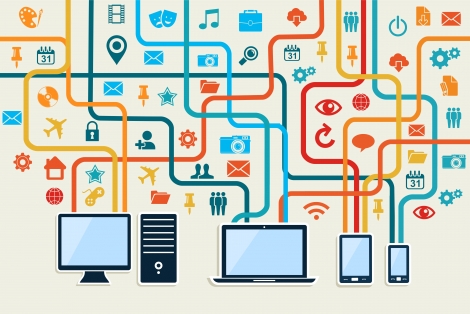A common plot device of dystopian fiction is the forceful interpolation of a hostile or overbearing technology. The Orwellian backdrop of an invasive monitoring system or an evil supercomputer handily sets the stage for tension and dramatic conflict. Thankfully leave the most sinister of technological machinations in the pages of fantasy.
At the same time, there remains a concerned segment of the public that would prefer to see less invasive use of technology in their lives. One one end of this spectrum are the societies (such as the Amish) who dedicate themselves to doing without some of the modern conveniences such as cars, electricity, and indoor plumbing. On the more mainstream, conservative end of the spectrum there is a technologically savvy segment of the population that wishes to maintain a sense of privacy, control and establish conservative boundaries that restrict the invasive use of technology in their lives.
With some exception, this latter segment may be more likely to opt-out of social media services and restrict personal interactions so that the occur in an “in–person” capacity. They may also be more inclined to advocate for rules, controls and restrictions that establish boundaries that limit the invasive use of technology in society. Unfortunately, as the Internet of Things (IoT) begins to hyperconnect the world through a pervasive number of internet-enabled devices, cameras and sensors, this is making this increasingly difficult.
Recently, Internet Society (IS) Chief Internet Technology Officer Olaf Kolkman posted on the Internet Society blog about the unique challenges of “opting out” of the IoT. As more and more traditionally non-technological systems incorporate Internet connectivity, staying off the grid becomes more and more difficult. Taking a cue from the pages of dystopian fiction, Kolkman poses a question that suggests opting out may not be possible:
There may not be a possibility to opt out because in the smart cities of the future, sensors may track our moves, recognize our faces, and hear our voices. The dystopian view helps us to understand what societal boundaries we need to set and that is a discussion that will have to inform policies. To what extent do we accept that there is a minority that does not want to be exposed to technology?
Kolkman is not the first person to pose this question, and it’s an important one to consider. The global conversation surrounding big data versus personal privacy rights has been ongoing for some time now. If Kolkman’s inclinations are to be taken seriously, the significance of this discussion will only increase with time.
If you’re interested in sharing your thoughts on opting out of the Internet of Things, you can do so by leaving a comment on this post or by using the Internet Society’s Connect Platform.
Your input doesn’t have to end there. You can become an OpenStand advocate and stand with us in advocating for standards that are open, accessible, based on broad consensus and voluntarily adopted. Feel free to:
- Display a site badge on your website
- Tell your friends about OpenStand and the OpenStand principles

